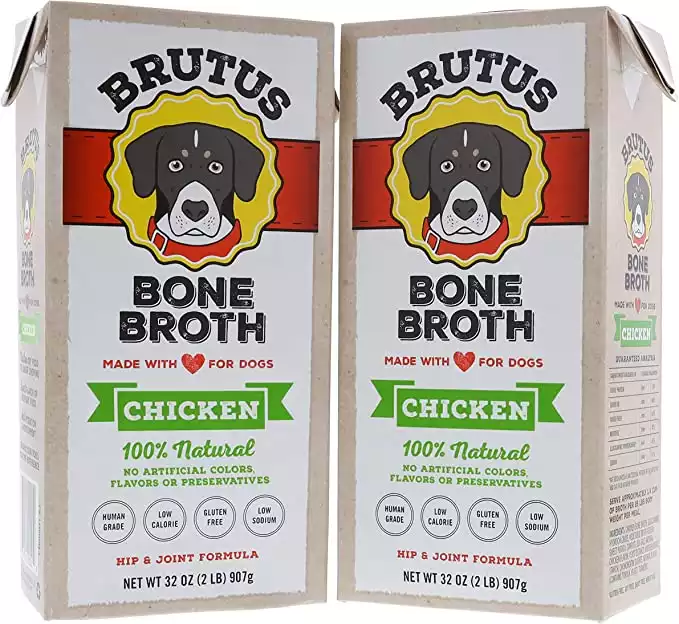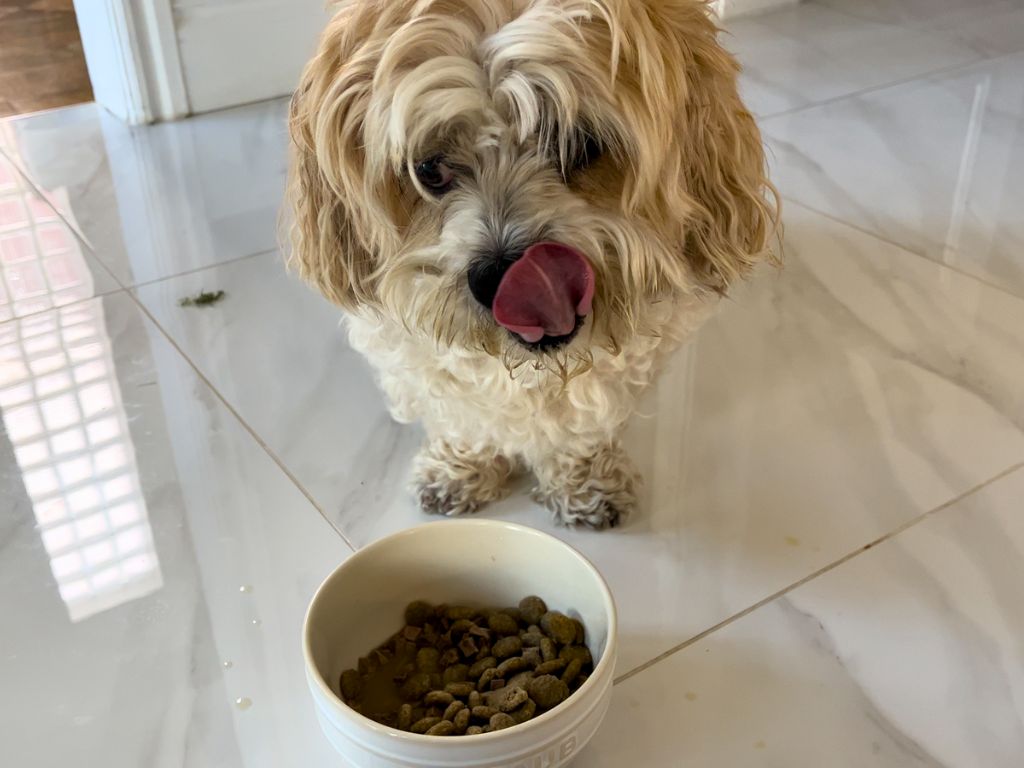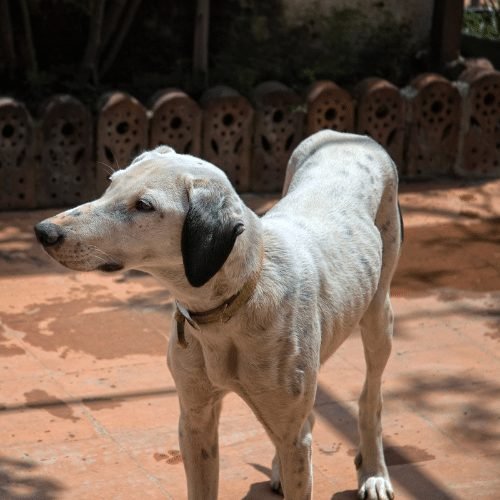Senior dogs often face challenges with weight gain. As they age, their metabolism slows down. So let’s jump deep: How to Get a Senior Dog to Gain Weight?
This can lead to weight loss and health issues. Understanding how to help your senior dog gain weight is crucial for their well-being. In this blog post, we will explore effective strategies to encourage weight gain in older dogs. Many factors can affect a senior dog’s weight, including diet, health conditions, and activity level.
Knowing how to address these issues can make a big difference. You want your furry friend to feel healthy and happy. With the right approach, you can help your senior dog regain their strength and vitality. Let’s dive into practical tips and solutions for this important task.

Credit: spiritdogtraining.com
Table of Contents
Recognizing Weight Issues In Senior Dogs
Weight issues in senior dogs can be serious. Many owners overlook these signs. Being aware of weight loss is crucial. Proper care helps maintain their health.
Identifying Weight Loss
Noticing weight loss in your senior dog is important. Here are some signs:
- Ribs are visible or easily felt.
- Noticeable loss of muscle mass.
- Reduced energy or lethargy.
- Changes in appetite.
- Skin and coat appear dull.
Weigh your dog regularly. Use a scale designed for pets. This helps track any changes over time.
Health Implications Of Underweight
Being underweight can lead to serious health issues. Some common problems include:
- Weak immune system.
- Muscle wasting.
- Organ dysfunction.
- Increased risk of injury.
Consult your vet for advice. They can help create a weight gain plan.
| Health Issue | Symptoms |
|---|---|
| Weak Immune System | Frequent infections, slow recovery |
| Muscle Wasting | Visible muscle loss, weakness |
| Organ Dysfunction | Vomiting, diarrhea, lethargy |
| Increased Risk of Injury | Difficulty moving, fractures |

Credit: www.furryaging.com
Consulting With A Veterinarian
Getting a senior dog to gain weight can be tricky. Consulting with a veterinarian is essential. They provide valuable insights and tailored advice for your pet. Proper guidance helps ensure safe and effective weight gain.
Importance Of Professional Advice
Veterinarians know a lot about dog health. They understand the unique needs of senior dogs. Here are reasons to seek their advice:
- Identify underlying health issues.
- Recommend appropriate diets.
- Suggest safe supplements.
- Monitor weight gain progress.
Regular check-ups can help catch problems early. A vet’s expertise is vital in creating a weight gain plan.
Conducting Health Assessments
Your vet will perform health assessments. These checks help understand your dog’s condition. Common assessments include:
- Physical examination.
- Blood tests.
- Urinalysis.
- Weight monitoring.
These tests reveal any health concerns. They also guide dietary choices and weight gain strategies. Your vet may recommend a special diet tailored for weight gain. Follow their advice closely.
High-calorie Foods For Weight Gain
Getting a senior dog to gain weight can be challenging. High-calorie foods help provide the extra energy they need. Choosing the right diet is essential. It ensures your dog receives proper nutrition while gaining weight. Here, we explore some effective options.
Choosing The Right Diet
When selecting food for your senior dog, consider these factors:
- High protein content: Look for foods with at least 25% protein.
- Healthy fats: Ingredients like chicken fat or fish oil are great.
- Low fiber: Less fiber helps in better digestion and absorption.
Some good options include:
| Type of Food | Protein Content | Comments |
|---|---|---|
| Dry Kibble | 25-30% | High in calories and easy to store. |
| Canned Food | 25-35% | Moist and flavorful, often more palatable. |
| Raw Diet | Variable | Fresh ingredients, but requires careful handling. |
Safe Human Foods For Canine Weight Gain
Some human foods can help your dog gain weight safely. Here are some options:
- Cooked chicken: Provides protein and is easy to digest.
- Peanut butter: High in calories and dogs love it.
- Sweet potatoes: Packed with nutrients and calories.
- Plain yogurt: Good source of protein and calcium.
- Oatmeal: A healthy carbohydrate option.
Introduce new foods gradually. This helps avoid stomach upset. Always ensure foods are cooked and free from harmful ingredients. Avoid onions, garlic, and chocolate. These can be toxic.

Credit: www.reddit.com
Feeding Strategies For Underweight Seniors
Helping senior dogs gain weight can be challenging. Proper feeding strategies are crucial. A well-planned diet can improve their health. Focus on meal frequency, portion sizes, and appetite stimulation.
Meal Frequency And Portion Sizes
Increase meal frequency to help your senior dog gain weight. Smaller, more frequent meals can be easier to digest. Aim for 3 to 4 meals a day. This helps keep their energy up and encourages eating.
| Meal Frequency | Portion Size |
|---|---|
| Twice a Day | 1-2 cups per meal |
| Three Times a Day | ¾ – 1 cup per meal |
| Four Times a Day | ½ – ¾ cup per meal |
Adjust portion sizes based on your dog’s weight. Monitor their response to food. Gradually increase portions if needed. Always use high-quality, calorie-dense food. Look for options with higher protein and fat content. This helps to promote healthy weight gain.
Appetite Stimulation Techniques
Encourage your senior dog to eat using these methods:
- Warm up food: Slightly heating the food can enhance aroma.
- Mix in tasty toppers: Add broth, canned food, or pumpkin.
- Hand-feeding: Sometimes, dogs eat better from your hand.
- Routine: Stick to a consistent feeding schedule.
- Limit distractions: Create a quiet space for meals.
Each dog is unique. Pay attention to their preferences. Try different foods and techniques. Keep a close eye on their weight and health. Consult your vet for tailored advice.
Supplements To Support Weight Gain
Senior dogs often struggle to gain weight. Their metabolism changes, and they may lose muscle mass. Supplements can help boost their calorie intake. They also provide essential nutrients. Using the right supplements can promote healthy weight gain.
Effective Supplements For Seniors
Many supplements can aid in weight gain for senior dogs. Here are some effective options:
- High-Calorie Pastes: These provide extra calories. They are easy to administer and digest.
- Protein Powders: Protein supports muscle health. Look for dog-specific formulas.
- Fatty Acids: Omega-3 and Omega-6 oils boost calorie content. They also promote a healthy coat.
- Meal Enhancers: These can be sprinkled on food. They add flavor and nutrients.
- Probiotics: Improve gut health and digestion. A healthy gut helps with nutrient absorption.
Monitoring Supplement Intake
Keeping track of supplements is vital. Measure the right dosage for your dog’s size. Follow the product instructions closely. Here are steps to monitor intake:
- Check the label for recommended amounts.
- Use a measuring scoop for accuracy.
- Observe your dog’s reaction to the supplement.
- Adjust the dosage if needed.
Record your dog’s weight weekly. This helps you see progress. Consult your vet regularly. They can recommend adjustments based on your dog’s health.
The Role Of Exercise In Weight Management
Exercise plays a vital role in a senior dog’s weight management. It helps maintain muscle mass and improves overall health. Regular activity can boost metabolism, which aids in weight gain.
Finding the right balance between exercise and diet is key. Too much exercise can burn calories needed for weight gain. On the other hand, too little activity can lead to obesity. Understanding this balance is essential for your dog’s well-being.
Balancing Activity And Diet
To help a senior dog gain weight, focus on these factors:
- Diet: Ensure high-quality, calorie-dense food.
- Exercise: Adjust activity levels based on your dog’s needs.
- Monitoring: Keep track of your dog’s weight regularly.
Weight gain requires a careful approach. Too much activity can lead to weight loss. Aim for a moderate routine that includes both exercise and rest.
Gentle Exercises For Older Dogs
Choose exercises that suit your senior dog’s abilities. Here are some gentle options:
- Short Walks: Start with 10-15 minute strolls.
- Swimming: A low-impact option that is easy on joints.
- Playtime: Engage with soft toys for light play.
- Interactive Games: Use puzzle toys to stimulate mental activity.
Always observe your dog’s response. Adjust the duration and intensity as needed. Regular, gentle exercise helps improve appetite and promotes weight gain.
Monitoring Progress And Adjusting The Plan
Tracking your senior dog’s weight gain is important. It helps you see what works and what doesn’t. Adjusting the plan can make a big difference.
Setting Realistic Goals
Set clear and achievable goals for your dog’s weight gain. Consider these factors:
- Current weight and ideal weight
- Age and breed
- Health status
A safe weight gain for senior dogs is about 1-2% of their body weight per week. Use a simple chart to track progress:
| Week | Weight (lbs) | Notes |
|---|---|---|
| 1 | 50 | Starting weight |
| 2 | 51 | Gained 1 lb |
| 3 | 52 | Gained 1 lb |
Adjust goals as needed. Celebrate small wins. This keeps you and your dog motivated.
When To Adjust The Diet
Watch your dog’s weight closely. Adjust the diet if:
- No weight gain after two weeks
- Weight gain exceeds 2% in a week
- Dog shows signs of discomfort or illness
Try these steps to adjust the diet:
- Increase meal frequency to three or four times daily.
- Add high-calorie foods like peanut butter or coconut oil.
- Change to a higher protein dog food.
Keep monitoring. Regular check-ins help you stay on track.
Caring For A Senior Dog’s Overall Health
Caring for a senior dog requires attention to their overall health. Many older dogs struggle to maintain a healthy weight. Understanding their unique needs is essential. Proper care can help them gain weight safely.
Hydration And Digestive Health
Hydration is vital for senior dogs. Older dogs often drink less water. This can lead to dehydration and other health issues.
- Ensure fresh water is available at all times.
- Consider wet food to increase moisture intake.
- Add water or broth to dry food.
A healthy digestive system supports weight gain. Look for signs of digestive problems:
- Vomiting
- Diarrhea
- Loss of appetite
Choose high-quality food that is easy to digest. Fiber can help digestion but should be balanced. Too much fiber can hinder weight gain. Consult your vet for suitable dietary options.
Managing Comorbidities With Diet
Many senior dogs have health issues alongside weight loss. These include arthritis, diabetes, and kidney disease. Adjusting their diet can help manage these conditions.
| Condition | Dietary Considerations |
|---|---|
| Arthritis | Incorporate anti-inflammatory foods, like fish. |
| Diabetes | Offer low-carb, high-fiber meals. |
| Kidney Disease | Limit protein and phosphorus intake. |
Consult your veterinarian for a tailored diet plan. Regular check-ups will help monitor their health. Keep track of their weight and adjust food as needed.
Always prioritize a balanced diet. This will support their overall health and help them gain weight safely.
Frequently Asked Questions
How Can I Help My Senior Dog Gain Weight?
To help your senior dog gain weight, increase their food intake with high-calorie options. Consider adding premium wet food or specially formulated weight gain kibble. Additionally, ensure they have regular vet check-ups to rule out underlying health issues. Gradual changes will help prevent digestive upset.
What Should I Feed My Senior Dog To Gain Weight?
Opt for high-quality, calorie-dense foods that are easy to digest. Look for options that contain healthy fats, proteins, and carbohydrates. You might also add meal toppers like canned pumpkin or cooked eggs for extra calories. Always consult your vet before making significant dietary changes.
Is It Safe For Senior Dogs To Gain Weight Quickly?
Rapid weight gain can be harmful to senior dogs. It can lead to health issues like joint problems or heart disease. Aim for a gradual weight increase instead. This allows their body to adjust and helps maintain overall health. Regular monitoring and vet guidance are essential.
How Often Should I Feed My Senior Dog?
Feeding senior dogs smaller, more frequent meals can be beneficial. This approach can help with digestion and calorie absorption. Aim for three to four meals a day, depending on their specific needs. Always adjust portion sizes based on their activity level and weight goals.
Conclusion
Helping a senior dog gain weight can take time and care. Focus on high-quality food and regular meals. Monitor their health closely. Always consult a vet for advice. Small changes can make a big difference. Keep their environment stress-free and loving.
With patience, your dog can reach a healthier weight. Remember, their comfort and happiness are just as important. Every step you take shows your love for them. Celebrate their progress, no matter how small. Your efforts will surely pay off in their well-being.



